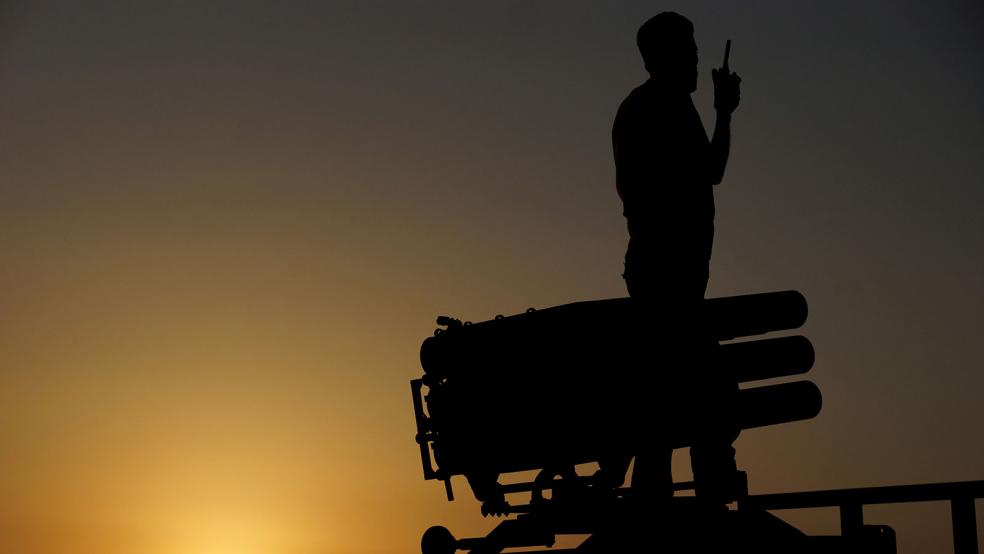In the wake of the ISIS attacks in Paris, President Obama and his efforts to defeat the extremist group have come under withering criticism from Congress — including members of his own party -- and from hopefuls on the presidential campaign trail.
On Sunday, Sen. Dianne Feinstein (CA), the top Democrat on the Senate Intelligence Committee, summed up the prevailing mood about the U.S. led coalition campaign when she said during an appearance on CBS’s Face the Nation, “[The anti-ISIS fight] has gone on too long now. And it has not gotten better. It's gotten worse.”
Related: A Testy Obama Warns Republicans: Your Rhetoric Is Helping ISIS
Here’s why Obama’s losing the country’s confidence in the fight against ISIS:
Perception
While the 14-month-old military campaign against jihadists has suffered setbacks before, a new sense of pessimism has taken hold since the Paris attacks killed at least 130 and injured more than 300.
In news conferences overseas last week, Obama grew testy over questions about his plan to fight ISIS in the aftermath of the Paris attacks and the bombing of a Russian commercial jet in Egypt.
“If folks want to pop off and have opinions about what they think they would do, present a specific plan. If they think that somehow their advisers are better than the chairman of my Joint Chiefs of Staff than the folks who are actually on the ground, I want to meet them,” he said in Turkey.
A new CBS News poll found 66 percent of Americans believe the president lacks a clear strategy for battling ISIS. Only 23 percent believe Obama has spelled out a plan for fight the terror network.
Perhaps that’s why the number of adults in the nationwide phone survey who now support sending U.S. ground troops into the Middle East has risen to 50 percent, up four points from August.
Related: With ISIS Making Millions, U.S. Boosts Its Attacks on Oil Fields
Obama has repeatedly ruled out committing a large ground force but 63 percent of Americans now view such a step as unavoidable, according to the new poll. Only 20 percent think airstrikes alone can defeat the radical group.
Cooked Books?
Within the administration, there is growing concern that analysts at U.S. Central Command (CENTCOM), which is overseeing the war against the Islamic State, altered intelligence reports to inflate the effectiveness of U.S. airstrikes on the terror group.
The controversy has been simmering for months and now the Pentagon inspector general is expected to look into the matter.
“I don't know what we'll discover with respect to what was going on at CENTCOM,” Obama said Sunday in Malaysia, referring to a New York Times story that described how supervisors changed data to cover up military failures.
The Pentagon has reportedly expanded its inquiry into the charges and seized emails and other documents to scrutinize.
“One of the things I insisted on the day I walked into the Oval Office was that I don't want intelligence shaded by politics. I don't want it shaded by the desire to tell a feel-good story. We can't make good policy unless we've got good, accurate, hard-headed, clear-eyed intelligence,” according to Obama.
Related: Why Even Obama Doesn’t Know If We’re Winning the War Against ISIS
“I have made it repeatedly clear to all my top national security advisers that I never want them to hold back, even if the intelligence or their opinions about the intelligence, their analysis or interpretations of the data contradict current policy,” he continued.
Reality on the Ground
In recent weeks, the administration has shifted to a new course of attack on ISIS: choking off its oil revenue.
ISIS is estimated to be able to earn up to $50 million a month through the production and sale of oil on the black market. The U.S. and its allies last month began an operation, named Tidal Wave II that also targets the group’s refineries in Iraq and Syria.
Meanwhile, on Monday, U.S. planes destroyed an estimated 280 ISIS oil trucks near the border between Syria and Iraq, NBC reported. That’s on top of the 116 oil trucks it destroyed in the previous week.
But the new steps have drawn faint praise of observers, who believe such a step should have been taken earlier.





